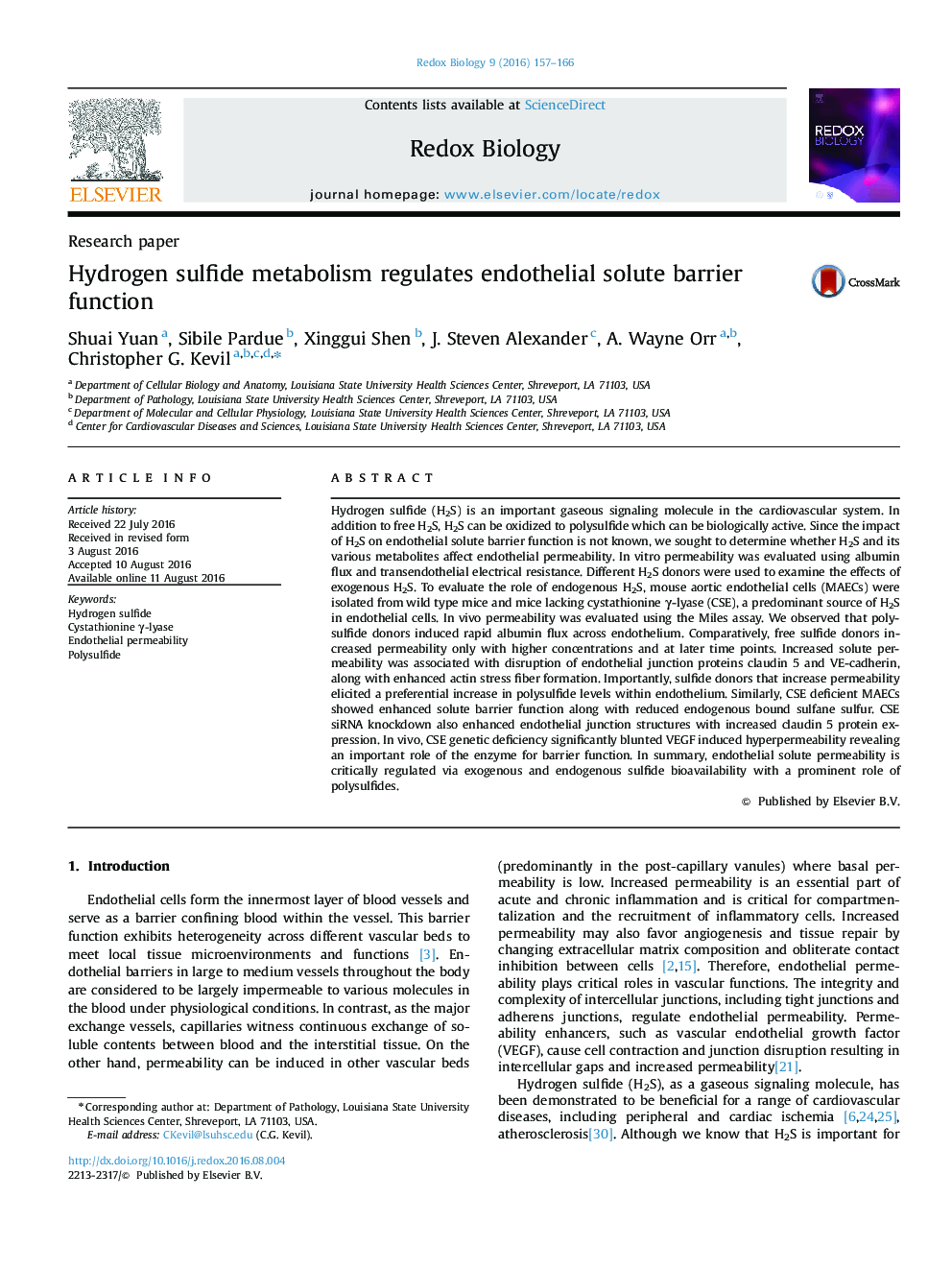| کد مقاله | کد نشریه | سال انتشار | مقاله انگلیسی | نسخه تمام متن |
|---|---|---|---|---|
| 1922816 | 1535841 | 2016 | 10 صفحه PDF | دانلود رایگان |
• Polysulfide from cystathionine γ-lyase (CSE) and exogenous polysulfide donors increases endothelial permeability.
• The ability of polysulfide to increase permeability is associated with junction disruption and stress fiber formation.
• CSE expression in vivo regulates VEGF induced hyper-permeability.
Hydrogen sulfide (H2S) is an important gaseous signaling molecule in the cardiovascular system. In addition to free H2S, H2S can be oxidized to polysulfide which can be biologically active. Since the impact of H2S on endothelial solute barrier function is not known, we sought to determine whether H2S and its various metabolites affect endothelial permeability. In vitro permeability was evaluated using albumin flux and transendothelial electrical resistance. Different H2S donors were used to examine the effects of exogenous H2S. To evaluate the role of endogenous H2S, mouse aortic endothelial cells (MAECs) were isolated from wild type mice and mice lacking cystathionine γ-lyase (CSE), a predominant source of H2S in endothelial cells. In vivo permeability was evaluated using the Miles assay. We observed that polysulfide donors induced rapid albumin flux across endothelium. Comparatively, free sulfide donors increased permeability only with higher concentrations and at later time points. Increased solute permeability was associated with disruption of endothelial junction proteins claudin 5 and VE-cadherin, along with enhanced actin stress fiber formation. Importantly, sulfide donors that increase permeability elicited a preferential increase in polysulfide levels within endothelium. Similarly, CSE deficient MAECs showed enhanced solute barrier function along with reduced endogenous bound sulfane sulfur. CSE siRNA knockdown also enhanced endothelial junction structures with increased claudin 5 protein expression. In vivo, CSE genetic deficiency significantly blunted VEGF induced hyperpermeability revealing an important role of the enzyme for barrier function. In summary, endothelial solute permeability is critically regulated via exogenous and endogenous sulfide bioavailability with a prominent role of polysulfides.
Figure optionsDownload as PowerPoint slide
Journal: Redox Biology - Volume 9, October 2016, Pages 157–166
